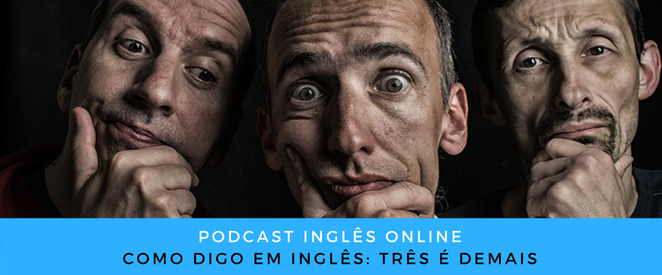Hello Ana,
That’s the first time that I listen your podcast. It’s very good! Congratulations!
I think will help me to learn English
kisses
Hi Ana Lucia, I’m here just to say thank you!!
Very nice podcast with a hight quality and very usefull too.
Bye, and please, keep your nice work!
Thanks for stopping by, Gabriel ;)
You’re very welcome Ana Luiza,
I lived in Allentown, Pennsylvania for 5 years. At that time, I was working in New Jersey. I go there quite often, my good Brazilian friends live there, in Union. I also go to the Day of Brazil and Brazilian restaurants in Newark, NJ. I’ve been living in Delaware since 2010.
If you put a “PortugueseOnline” course together let me know. I love your teaching technique. (Specially the one “Como se diz _____ em ______? “) I use the same one in my lessons. My students learn everyday information that they can use right way and all the time. Have a great weekend! I was nice talking to you.
Hi Ana Luiza,
I live in Newark, Delaware. I like to take a look in your website/emails once I while. I teach Portuguese here and always
find nice ideas to incorporate in my lessons. Right now, I am about to introduce you to my new two students, so them can read some Portuguese in your site and list the idiomatic expressions. Meaning, they are going to use your work in the opposite way, to learn Portuguese. It will help them anyway, I am sure about that.
PS. I told about you to my dad (Raymundo de Jesus, post above). It was a surprise to see that he is actually sending posts! He always mentions how much he is learning with you. Thanks!!!!
Hi Angela,
This is so cool. Please let me know if your students were able to pick up/recognize a few terms in Portuguese. Sometimes I think about developing a Portuguese course (just like the Basic English course I offer)… The moment I read Newark my mind immediately went to Newark, NJ (I lived in Jersey City for a year)
And, of course, I’m super glad to know that your dad has been enjoying the site!!
Thanks for stopping by and for the kind words;)
Very good!
Thank you, once more!
P.S. 1- In your recent post – Friends Catching Up – you’ve rote ” (J) Awesome! ”
that I couldn’t translate correctly. 2- Do I have to type my name and e-mail
address every time I post a comment?
Raymundo
Hi Raymundo,
1) That’s a more informal term, and it means “Demais!”
2) Nope, but you would have to turn on “cookies” on your browser, I think…
Cloud 9!
Everyone, thanks for leaving your comments ;) Much appreciated!
Ana, essa expressão seria algo como “somar dois mais dois” no sentido de juntar as evidências?
How could I say? Just THANKS!!! For all the tips and for enlightening my english knowledge. LOve, Ana Lúcia
Ana Luiza, sorry, but I didn’t understand the meaning of “put two and two together”. What does that mean in portuguese?
I would like to thank you for your podcasts that help me a lot. I listen to your voice everyday during the SP’traffic.
Do I speak correctly? Transito de São Paulo?
Thank you a lot!
Yes, Debora, that’s correct, you can say “the São Paulo traffic”
Put two and two together seria concluir que alguma coisa aconteceu ou está acontecendo depois de ver uma pista aqui, outra ali, etc. Não sei uma expressão em português.. alguém lembra?
Hi Ana! Seria como dizer ” como dois e dois são quatro “? Kisses
Ana, eu achei esse indiom parecido com uma frase que eu vi em um filme de humor americano, ‘Ano 1’, no qual dois homens da floresta esbarram com Caim e Abel, e estes começam a discutir, sendo que Caim mata Abel, e vai embora com os outros dois homens. Na cena seguinte, quando a familia de Abel foi procurar por ele, Caim convida os homens a fugir e diz algo mais ou menos assim: “Eu tenho a impressão de que vão querer colocar a culpa em vocês dois.” “Por que?”, um deles pergunta, Caim responde: “Bom, por que quando eles virem o corpo de Abel, vão querer por a culpa em alguém, vocês dois são viajantes, eles vão somar dois mais dois….” Você acha que essa poderia ser uma tradução?
Está me parecendo que foi exatamente a expressão usada no original! Put two and two together.
Não sei… Você está acostumado a ouvir aqui no Brasil “somar dois mais dois” para significar “chegar à conclusão que”? Eu não estou.
Eu fico muito feliz quando ouço algo que aprendi com o podcast, muito maneiro mesmo.
Fiz maratona pra ouvir todos.
um abrax
Já tem mais de 100!
I love all your podcasts!



 Here’s another example: your friend Mary had told you she had broken up with Michael. You were happy for her because you think Michael is bad news… He cheated on his previous girlfriend, and there are a couple of people who say he owes them a lot of money. So you drop by Mary’s place and, when you guys are on your way to the kitchen to grab a beer you spot Michael’s baseball cap on a chair. You know it’s Michael’s cap because it’s the only purple hat you’ve ever seen. You think to yourself, maybe Michael left it here when they broke up and Mary just doesn’t want to contact him to return the cap.
Here’s another example: your friend Mary had told you she had broken up with Michael. You were happy for her because you think Michael is bad news… He cheated on his previous girlfriend, and there are a couple of people who say he owes them a lot of money. So you drop by Mary’s place and, when you guys are on your way to the kitchen to grab a beer you spot Michael’s baseball cap on a chair. You know it’s Michael’s cap because it’s the only purple hat you’ve ever seen. You think to yourself, maybe Michael left it here when they broke up and Mary just doesn’t want to contact him to return the cap.